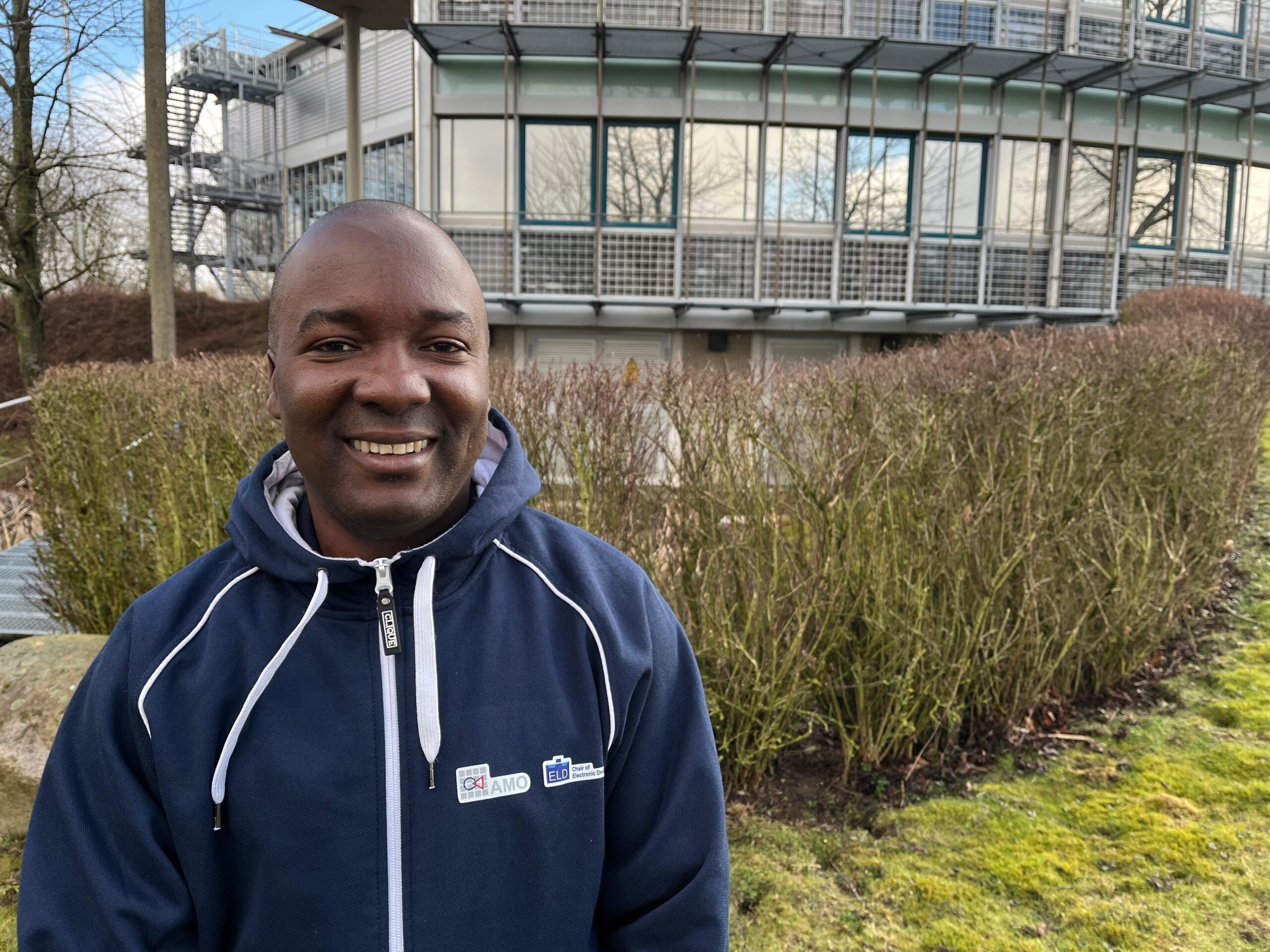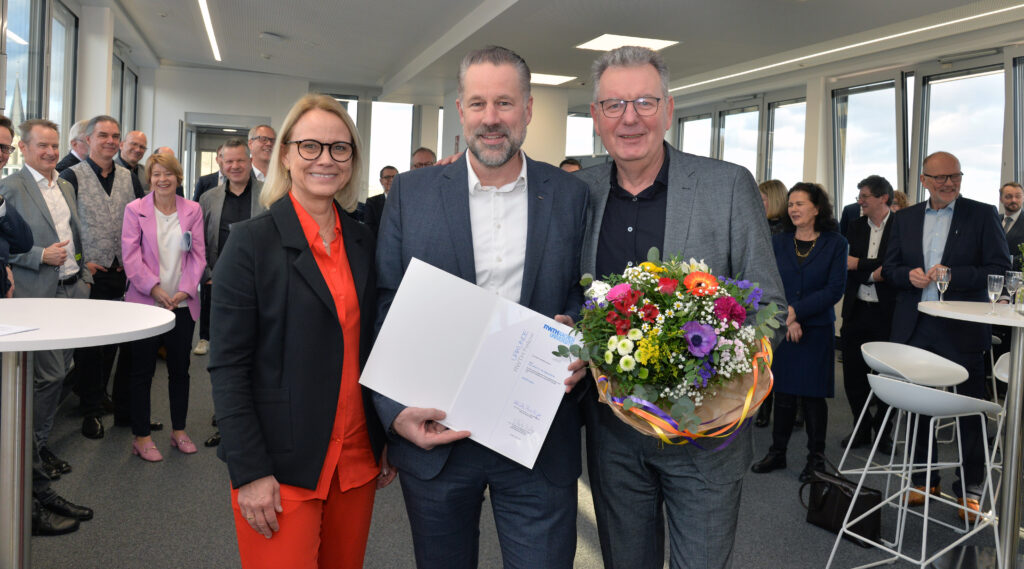Schlagwort: ‘Lehrstuhl für Elektronische Bauelemente’
Scholarship holder develops protective helmets made of snail shells

© Judith Peschges
Bayode Adeyanju from Nigeria is developing innovative protective helmets at the Chair of Electronic Devices (ELD) that combine natural and artificial materials.
In February of this year, the scientist arrived at the Chair of Electronic Devices at RWTH Aachen University, having been awarded a scholarship from the German Academic Exchange Service (DAAD). Until May, he will be conducting research under Professor Max Lemme’s supervision, with the objective of developing stable helmets that optimally absorb shocks and offer particularly good protection. For the purposes of his research, Adeyanju is combining artificial Kevlar fibres with natural snail shell nanoparticles. In the context of Nigeria, where snail shells are commonly viewed as a nuisance and a potential environmental concern, their high calcium content renders them of interest for materials research. The scientist crushed both materials and ground them finely. The substance was then combined with epoxy resin, and subsequently filled into a mould, where it underwent a process of hardening. Subsequent tests were then conducted to ascertain the impact resistance, hardness and density of the helmets. The combination of the favourable properties of the two base materials forms the basis for the production of high-performance protective helmets.
In his study, Adeyanju presents the results of his research, which indicates that the combination of natural and artificial materials enables the development of innovative protective materials. At RWTH, the scholarship holder utilises state-of-the-art research facilities and equipment to characterise selected materials. Such studies would not be possible at his home university in Nigeria.
‘Knowledge is power,’ says Adeyanju, adding: ‘RWTH has everything it takes to change the world.’
The first thing he noticed in Aachen was how the streets became quieter in the early evening as people went home, says Bayode Adeyanju. This is very different from his home country of Nigeria, where he is used to having friends and family over. Even though Aachen is quieter in the evenings than Nigeria, Adeyanju felt welcome from the start of his research stay. AMO GmbH, a non-profit research organisation, is also contributing to this by supporting his four-month stay. And after one month at RWTH Aachen, Bayode Adeyanju is sure that he would like to come back and continue his cooperation with the Chair of Electronic Devices (ELD).
‘I have received a great deal of support from my colleagues at the ELD and at AMO, as well as from the students, and I feel very happy here,’ says the scientist.
Adeyanju decided to apply to the DAAD two years ago and was accepted last year. The German Academic Exchange Service is a prominent funding organisation that facilitates international student and academic exchange. Funded by German universities and student bodies, the organisation aims to prepare future specialists and managers to act responsibly and to create lasting connections worldwide. This objective is pursued by fostering professional and cultural networks among scholarship holders. Since its foundation in 1925, the DAAD has sponsored more than 2.9 million young academics in Germany and abroad. It is institutionally supported by the Federal Foreign Office.
With its motto ‘Change by Exchange’, the DAAD emphasises the importance of international understanding and cooperation. Another of the organisation’s central concerns is to support developing countries in establishing efficient universities, thus contributing to social, economic and political development.
Max Lemme receives RWTH Fellow award

Vice Rector Sabine Brück (left) and Vice Rector Matthias Wessling (right) honour Professor Max Lemme as RWTH Fellow. Photo: Andreas Schmitter
Professor Max Lemme, head of the Department of Electronic Devices, and Professor Harald Müller, head of the Department of Medieval History, are new RWTH Fellows. With this title, the RWTH Aachen University honours professors who have distinguished themselves in research and have rendered outstanding services to the RWTH Aachen University.
Professor Max Lemme is a highly respected expert in the field of devices based on 2D materials and enjoys international recognition. One of his major achievements is a study on a graphene-based field-effect transistor, which has been cited 1353 times to date. He has successfully obtained research funding, including an ERC Starting Grant in 2012 and a Proof of Concept Grant from the European Research Council in 2018. He was also awarded a prestigious Heisenberg Professorship by the German Research Foundation in 2012. Max Lemme was instrumental in the establishment of the NeuroSys Cluster of Excellence and is its spokesperson. He is also an expert reviewer for the European Community and regularly participates in major conferences in the field of semiconductor devices, including IEDM, ESSDERC, DRC and ULIS.
The award he holds was introduced as part of the Excellence Initiative in 2013 and is based on nominations from the Deans of the Faculties.
Click here to go to the website of the Chair of Electronic Components.



